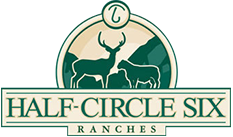Philip Glass, Dorper Sheep Breeder
Water Valley, Texas
The Dorper breed was developed in South Africa out of necessity. This stands in great contrast to most other breeds of sheep currently being bred in the United States and around the world. The Dorper was bred in the 1930’s because European wool breeds could not survive in the harsh African conditions and native hair breeds could not produce an acceptable carcass. We have much the same scenario today when looking at sheep breeds. The Dorper has filled the gap between the larger wool breeds that lack hardiness and easy care traits we are all looking for and the hair breeds that have the hardiness but lack acceptable growth rates and size. Dorper sheep excel in mothering ability, hardiness, adaptability, pasture utilization, and meat qualities. They are nonselective grazers and readily eat grass, weeds, and browse. This breed is non-seasonal and ewes easily produce twin lambs any time of the year. Currently there are more Dorper sheep in the country of South Africa than the entire sheep population of the United States.
In 1997 while on an African safari I noticed many Dorper flocks doing quite well on pastures that looked to me to be poor at best. These sheep appeared to be in good condition and had many lambs. After this experience I began working with Dorper rams and bred them to a variety of wool and hair breeds. What I noticed over the years was that the weight gain, hardiness, and in most cases temperament became better with each subsequent cross. This made me realize that for me in my ranching situation the Dorper was superior to the other breeds I was crossing with. It was not just hybrid vigor that made the lambs better than their mothers. I later purchased fullblood Dorper ewes to add to my herd. This was difficult to do at the time because of the cost of Dorper ewes was quite high. Because of worldwide demand the price of Dorper sheep has been quite high. I continually field calls and make sales to many other countries that are getting started with Dorpers. Over the years I have selected for the traits that have made the Dorper attractive to breeders around the world. I plan to continue to select for weight gain, hardiness, and shedding ability in my Dorpers.
Dorper sheep have done quite well for me on my ranch in West Texas. I now have 550 ewes and plan to double my herd as quickly as I can. The economics of raising sheep have changed with the introduction of Dorpers. With this easy care breed one person can manage many more ewes than was previously possible. The Dorper breed with its great mothering ability, hardiness, adaptability, pasture utilization, and meat qualities has a major role to play in the coming years in the United States sheep industry.
